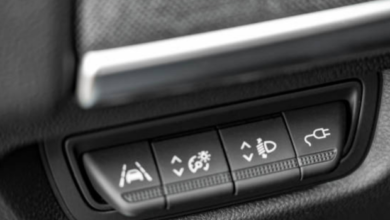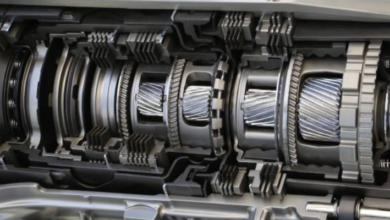What is a Continuously Variable Transmission? Are They Reliable?

What is a Transmission?
The transmission in a vehicle is a complex mechanical system responsible for transferring power from the engine to the wheels, allowing the vehicle to move forward or backward at various speeds. It accomplishes this by transmitting the rotational power generated by the engine to the wheels through a series of gears. Are the continuously variable transmission reliable? Let’s discuss it.
What is a Continuously Variable Transmission?
A continuously variable transmission (CVT) is a type of automatic transmission that offers a seamless and infinite number of gear ratios. Unlike traditional automatic transmissions with fixed gear ratios, a CVT doesn’t rely on distinct gears but instead utilizes a belt or chain running between two variable-diameter pulleys. By adjusting the diameter of these pulleys, the CVT can constantly vary the transmission ratio to match the engine’s speed with the desired vehicle speed. This allows the engine to operate more efficiently across a broader range of speeds, resulting in smoother acceleration and improved fuel economy.
CVT transmissions are known for their smooth and uninterrupted power delivery, as they can maintain the engine at its optimal operating range under varying driving conditions. Additionally, CVTs often provide a more comfortable driving experience compared to traditional automatic transmissions, as there are no noticeable shifts between gears. However, some drivers may find the lack of traditional gear changes to be less engaging, and there have been concerns regarding the durability and reliability of CVT systems, particularly in higher-performance or heavier vehicles. Nonetheless, CVT technology continues to evolve, offering a compelling alternative for drivers seeking improved fuel efficiency and driving comfort.
Are the CVT Transmissions Reliable?
The reliability of continuously variable transmission (CVT) systems has been a subject of debate among automotive enthusiasts and experts. While CVT technology offers benefits such as smoother driving experience and improved fuel efficiency, concerns have been raised regarding their long-term reliability and durability. Some drivers have reported issues with CVTs, including premature wear of components, belt or chain failures, and fluid leaks.
However, it’s essential to note that the CVT transmissions reliablitycan vary significantly depending on factors such as manufacturer, vehicle model, and maintenance practices. Some automakers have invested heavily in research and development to improve CVT design and durability, resulting in more robust and dependable systems. Proper maintenance, including regular fluid changes and inspections, can also help prolong the lifespan of CVT transmissions and mitigate potential reliability issues.
Overall, while CVT transmissions have faced criticism for reliability concerns, advancements in technology and maintenance practices have helped enhance their dependability. As with any automotive component, thorough research, proper maintenance, and careful consideration of manufacturer reputation can help ensure a positive ownership experience with a vehicle equipped with a CVT transmission.




